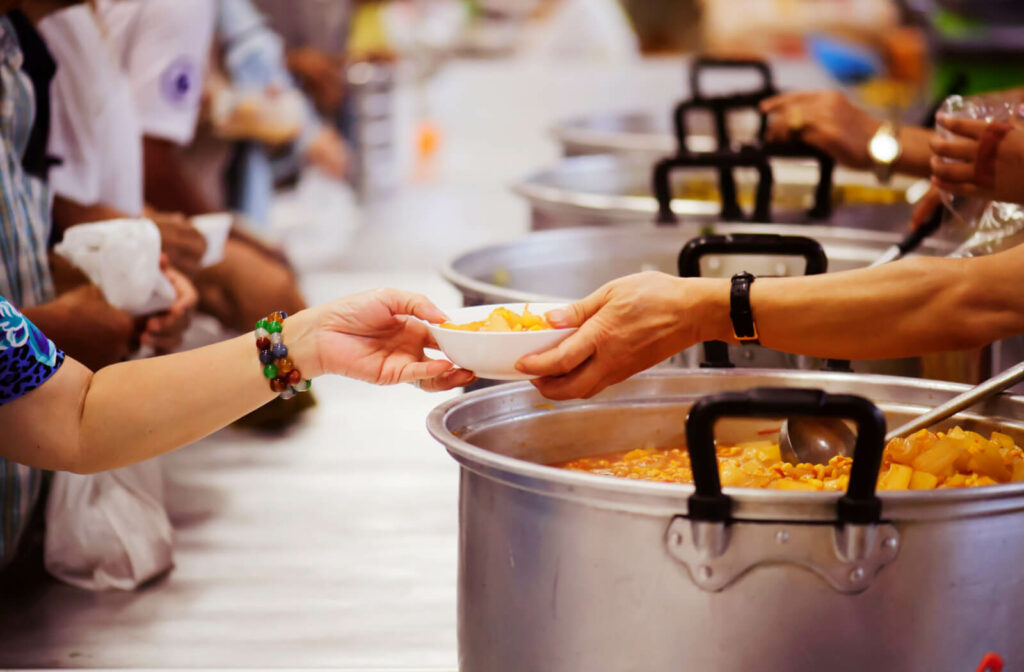Many people in Canada struggle with the basic necessities of life: Shelter, food, safety, hygiene, clothing, and access to healthcare. According to research, the effects of the Covid-19 pandemic increased household food insecurity in the general population from 14 to 17 percent. This shows that you don’t have to be homeless to be hungry.
The economic instability from the pandemic has also led to an increase in the number of homeless Canadians. Life is challenging when you combine homelessness and hunger. So, where do people who are homeless get their food?
Outreach communities and shelters offer essential needs for the homeless, including food and other services.
Causes of Homelessness
Homelessness in Canada can stem from the following reasons:
- Loss of employment
- Lack of affordable housing
- Separation in the family or family conflict
- Family violence
- Mental illness
- Poor physical health
- Substance use or addiction
- Physical, sexual, or emotional abuse
Vulnerable populations include:
- Women: Many women live on low incomes and are more likely victims of domestic violence.
- Indigenous Peoples: Indigenous Peoples are at higher risk for poverty and inadequate housing because of historical trauma and discrimination.
- Children and youth: 20% of the homeless population in Canada are between 13 and 24 years.
- Veterans: 4.4% of homeless individuals are veterans. Veterans are at higher risk of homelessness due to anxiety, post-traumatic stress disorder, or addictions.
Provinces and communities respond to homelessness by offering people who experience homelessness a place to sleep, food, hygiene, clothing, and care. These may include food banks, soup kitchens, outreach programs, drop-in centres, and shelters.
What Are Shelters?
People experiencing homelessness often seek shelter in places that can be dangerous and unsanitary. Homeless shelters provide temporary accommodation for people experiencing homelessness to sleep overnight.
Some also have additional services such as meals, hot showers, access to laundry services, and addiction or support services. Shelters may often also have resources to help people experiencing homelessness get back on their feet and reintegrate into society.
Emergency Shelters
Emergency shelters provide resources for individuals, families, and youth experiencing homelessness and crisis. Crisis includes domestic violence, sexual abuse, fleeing an abusive relationship, unemployment, addiction, and mental illness.
Some emergency shelters cater to genders and age groups. For example, women-only offers temporary or transitioning housing and additional support like counselling, legal assistance, food, and mental health.
Shelters Provide Food for the Homeless
Not having food or 3 meals a day is the reality for many people facing homelessness. They also prefer prepared meals as they have nowhere to cook food.
But how can they buy food if they have no money or job? And finding work if you are constantly hungry or malnourished is another hurdle.
Homeless individuals are susceptible to physical, emotional, and mental health consequences without adequate food. They are more likely to have poorer overall health and are at higher risk for chronic conditions.
Many shelters offer daily meals and a space for people to sit and enjoy them. At Regeneration Outreach, we offer an essential care program to break the cycle of poverty by providing daily hot meals.
- A healthy and filling breakfast is served daily from 8:00 AM to 9:30 AM
- A nourishing and delicious lunch is served on weekdays from 11:30 AM to 12:30 PM
Regeneration Outreach also offers our Marketplace (food bank service), a much-needed reliable food source for vulnerable communities. It’s open from Tuesdays through Saturdays, by appointment only.
Ontario, specifically Toronto, has the highest number of homeless people. There are ways in which we can show support for the homeless.
Donating food items to food banks, soup kitchens, and shelters can make a huge difference. Urgently needed items are:
- Pasta sauce
- Canned fruits and vegetables
- Hot and cold cereals
- Oil
- Pancake batter, flour, and syrup
- Canned meats
- Teabags
- Peanut butter
- Jelly
Homeless shelters often depend on volunteers to help support those going through homelessness. Individuals who volunteer their time in shelters can:
- Serve meals
- Provide help with resources and professional services
- Or simply lend a listening ear to make things less stressful.
Providing Basic Needs
Although shelters offer temporary housing, they provide so much more with meals, services, and other resources for those experiencing homelessness. Reliable and consistent food programs can fulfill one of the basic needs.
Are you interested in joining Regeneration as a volunteer? Contact us to learn about short-term, long-term, and group volunteering opportunities.



